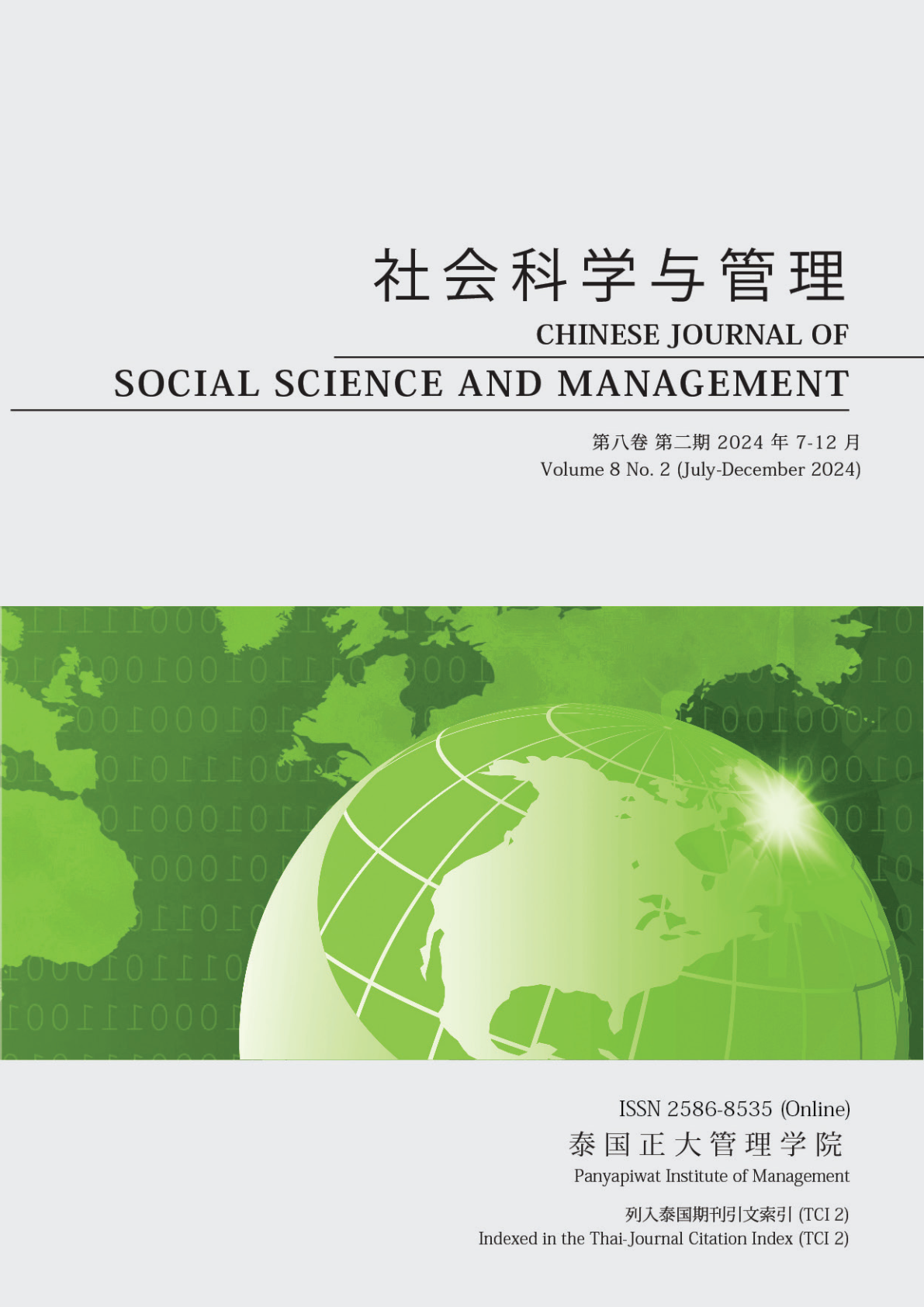THE ANALYSIS OF PARTICIPATION WILLINGNESS OF TIME CREDIT SCHEME OF MUTUAL AID SOCIAL CARE SYSTEM FOR MIDDLE-AGED AND ELDERLY CHINESE AND INFLUENCING FACTORS BASED ON ANDERSEN HEALTHCARE UTILIZATION MODEL
Main Article Content
Abstract
With the acceleration of the aging process in China, the pension problem has always been one of the major issues of social concern. This article focuses on the willingness to participate in the mutual pension system of time banks. In the research focus based on Andersen’s theoretical model, through statistical analysis of questionnaire survey data, the intention of middle-aged and elderly people to participate in mutual support for the aged and its influencing factors are explored from three dimensions: the propensity, enabling and demand factors. The results show that the propensity factor, enabling factor and demand factor can all affect the time banks of middle-aged and elderly people. The voluntary service mode of mutual support for the aged is one of the prominent ways to effectively deal with the problem of aging as it promotes the sustainable development of a healthy and beautiful China through government-led publicity and social support.
Article Details

This work is licensed under a Creative Commons Attribution-NonCommercial-NoDerivatives 4.0 International License.
Chinese Journal of Social Science and Management Editorial Division
The Office of Research and Development, Panyapiwat Institute of Management
85/1 Moo 2, Chaengwattana Rd., Bang Talat, Pakkred, Nonthaburi 11120, Thailand
Tel. 02 855 01048 E-mail: cjssm@pim.ac.th
References
Cahn, E. S. (2001). On lets and time dollars. International Journal of Community Currency Research, (5), 50-71.
Li, C. Y. (2019). Study on the willingness of the “time bank” mutual aid for the elderly in Shijiazhuang City [Master’s thesis]. Hebei University of Business and Economics. [in Chinese]
Li, C. Y. (2018). Combination of community home medical care for the elderly in ethnic minority areas analysis of the willingness and influencing factors of elderly care service mode choice: An empirical study based on Anderson behavior model. Journal of Yunnan Minzu University (Social Sciences), 35(5), 135-143. [in Chinese]
Lu, H. Y. (2021). Practice and discussion on co-production of elderly care services: Take time banking for example. Society and the Rule of Law, (7), 117-125. [in Chinese]
Lv, H. R . (2018). The comparison and interpretation of mutual help and social support between the elderly of Han and Uvghur-Based on the survey in Urumqi [Doctoral dissertation]. ZheJiang University. [in Chinese]
National Health and Family Planning Commission. (2015). Report on the family development in China, 2015. China Social Sciences Press. [in Chinese]
Wang, Y. T. (2017). Study on patterns of “time bank” mutual pension and participation willingness for young elderly [Master’s thesis]. Hangzhou Normal University. [in Chinese]
Wu, Y. S., & Dang, J. W. (2013). Report on the development of the cause of the elderly in China. Social Sciences Academic Press. [in Chinese]
Xu, Y. Q. (2021). The construction of Japanese time bank and its enlightenment to Chinese old-age service. Economic Research Guide, 2(460), 37-40. [in Chinese]
Zhang, L., Zeng, Y., & Fang, Y. (2017). The effect of health status and living arrangements on long-term care models among older Chinese: A cross-sectional study. PLoS One, 12(9), 10-15. [in Chinese]
Zhang, D. (2016). Analysis on the willingness and influencing factors of the elderly in Beijing. Research Report, 8(4), 19-25. [in Chinese]
Zhou, X. Y. (2021). Analysis on the willingness and influencing factors of middle-aged pension model choice in Jiangsu Province based on Anderson model. Modern Preventive Medicine, 48(40), 3660-3666. [in Chinese]


